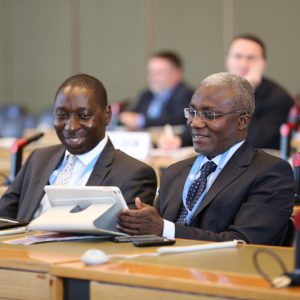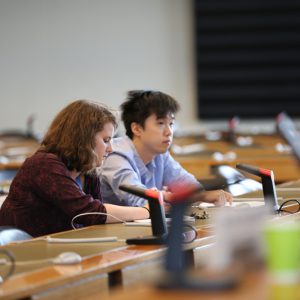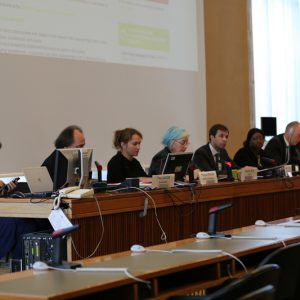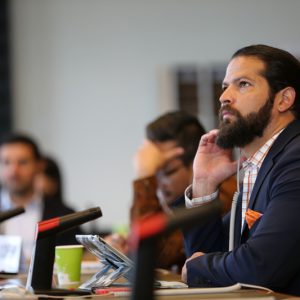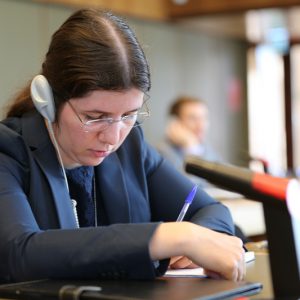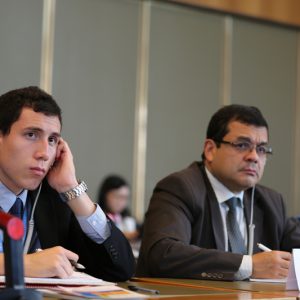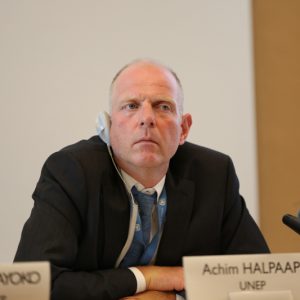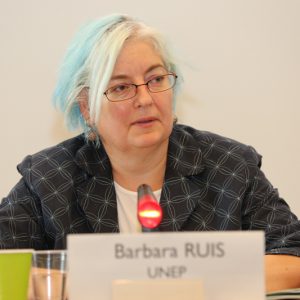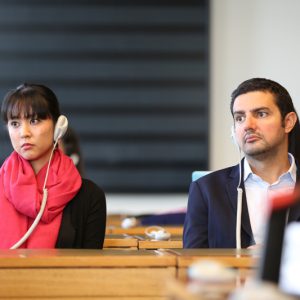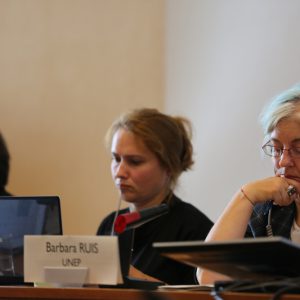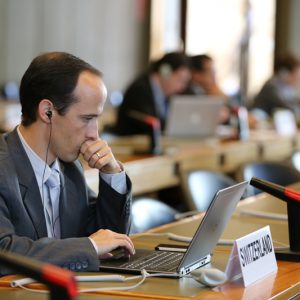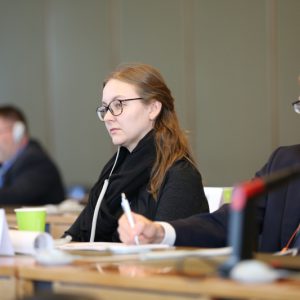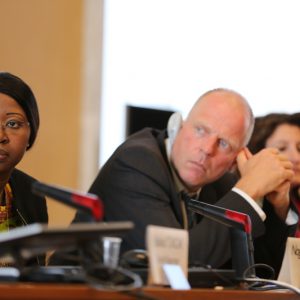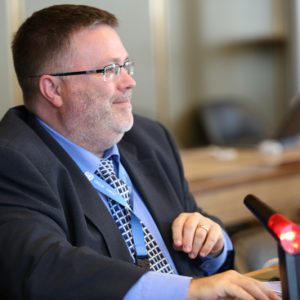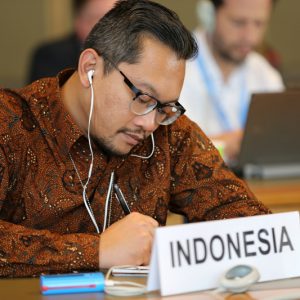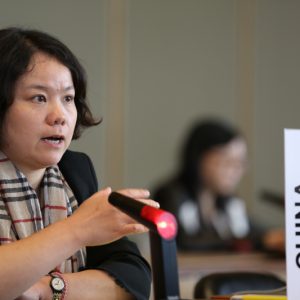Event
Special Rapporteur Report on the Right to Information on Hazardous Substances and Wastes

Side-event during the 30th session of the Human Rights Council
Introduction
In 1995, the then United Nations Commission on Human Rights (now Human Rights Council) adopted its resolution 1995/81 affirming that the illicit traffic and dumping of toxic and dangerous products and wastes constitutes a serious threat to the human rights to life and health, and established the mandate of the Special Rapporteur to examine the human rights aspects of the issue. Subsequently, in 2011, the scope of the mandate was reviewed and strengthened so as to cover not only the movement and the dumping of hazardous substances and wastes, but also the whole life cycle of hazardous products, from their manufacturing to their final disposal (cradle-to-grave approach). In August 2014, Baskut TUNCAK (Turkey) assumed the position of the Special Rapporteur.
Pursuant to Human Rights Council Resolution 27/23, the Special Rapporteur will present his first thematic report on right to information to the thirtieth session of the Human Rights Council (A/HRC/30/40) on 16 September 2015. On this occasion, the Geneva Environment Network together with the Special Rapporteur hosted a side-event on 18 September 2015.
More information on the report can be found at the Special Rapporteur’s OHCHR website
Main objectives of the side-event
- To provide venue for open and direct discussions with States on the report by the Special Rapporteur on the right to information on hazardous substances and waste
- To discuss opportunities and ways forward to implement the report on right to information
- To raise awareness by engaging practitioners, academics and other stakeholders and by discussing how the right to information on hazardous substances and wastes is being implemented and challenges faced.
The Right to Information report (A/HRC/30/40)
(1) Consultation Process
The Special Rapporteur invited States, intergovernmental organizations, national and international non-governmental organizations, national human rights institutions, United Nations agencies and entities, academia and all other interested stakeholders to contribute their views and perspectives in writing through a questionnaire. The Special Rapporteur received 48 responses to the questionnaire and is grateful for all the contributions.
(2) Salient points of the Right to Information Report
In the report (A/HRC/30/40), the Special Rapporteur clarifies the scope and content of the right to information throughout the life cycle of hazardous substances and wastes and identifies several challenges that have emerged in realizing this right, as well as potential solutions to these problems. He discusses several obligations of States and the responsibilities of business in relation to implementing the right to information on hazardous substances and wastes.
The Special Rapporteur emphasizes that the right to information on hazardous substances and wastes is central to the enjoyment of human rights and fundamental freedoms. He argues that information should be (1) available, (2) accessible and (3) functional for everyone, (4) consistent with the principle of non-discrimination.
He also emphasizes that exceptions for commercial secrets and claims of confidentiality are recurring challenges to realizing the right to information in the context of hazardous substances. He argues that the refusal to disclose information because it would adversely affect the value of intellectual property or the confidentiality of commercial businesses or industrial information is not legitimate if it may hamper public health or the overall public interest. He further argues that certain types of information about hazardous substances cannot be legitimately claimed as confidential. It is not legitimate to claim that public health and safety information on hazardous substances is confidential.
As for the obligations of States, the Special Rapporteur notes that States are duty-bound to generate, collect, assess and update information; effectively communicate such information, particularly to those disproportionately at risk of adverse impacts; to ensure confidentiality claims are legitimate; and to engage in international cooperation to ensure that foreign Governments have the information necessary to protect the rights of people in their territory.
With respect to businesses enterprises, the Special Rapporteur highlights that businesses have a responsibility to respect human rights referring to the Guiding Principles on Business and Human Rights. Businesses have a responsibility to respect, at a minimum, all internationally recognized human rights. In discharging their duty to conduct human rights due diligence, businesses are responsible for identifying and assessing the actual and potential impacts of hazardous substances and wastes, either through their own activities or as a result of their business relationships; to communicate information to other businesses, governments and the public effectively.
Agenda
Fairtrade coffee and tea available from 12:45
13:05 – 13:15
Welcome by moderator, Barbara RUIS, UNEP
13:15 – 14:20
Panel discussion
Baskut TUNCAK, United Nations Special Rapporteur on Human Rights and Hazardous Substances and Wastes
Nogozène BAKAYOKO, Counsellor, Permanent Mission of the Republic of Côte d’Ivoire
Achim HALPAAP, Head, UNEP Chemicals and Waste Branch
Amélie TAOUFIQ, Legal Officer, Basel, Rotterdam and Stockholm Conventions Secretariat
Maryna YANUSH, UNECE Aarhus Convention Secretariat
Yves LADOR, Earthjustice
14:20 – 14:50
Questions and answers session
14:50 – 14:55
Closing remarks by moderator
Panel Discussion
Baskut TUNCAK, United Nations Special Rapporteur on Human Rights and Hazardous Substances and Wastes presented the report.
Nogozène BAKAYOKO provide comments on behalf of Côte d’ivoire and the African group. She referred to the deadly toxic waste dumping in Côte d’ivoire in 2006. Cote d’Ivoire suffers from serious pollution and chemical issues which violates the right to health and safety.
Achmi HALPAAP refered to the upcoming ICCM4 meeting, as a good opportunity to raise the issues highlited in the report. He also discussed the problem of the information in this area being very technical. He made links to the Special Rapporteur on human rights and the environment John KNOX report.
Amélie TAOUFIQ focused on the Chemicals and Waste Conventions work and specific instruments to assist States and the involvement of civil society.
Maryna YANUSH from the Aarhus Convention Secretariat spoke about how the Aarhus Convention and the Protocol on PRTRs could support the recommendations of the Special Rapporteur.
Yves LADOR provided an update on the Open-Workshop held in the morning and developed the work of NGOs and civil society on various issues linking to the right to information.
The four legal components of the right to information, regarding hazardous substances and wastes, as developed by the Special Rapporteur in his report provide an excellent basis on which further work can be developed. He reminded that the Chemicals Conventions only cover 0.1% of all chemical products which shows there is still a huge challenge. A human rights based approach (HRBA) gives an opportunity to embrace more than just listed substances. Availability : For too many products we do not have information, and we need to know the effects of combinations of substances, which makes things more and more complex. Rights of people are not equal. For authorities lacking adequate means or managing huge territories, just knowing what chemicals are entering the country is a challenge – people are affected by substances authorities don’t even known this exist in the country. Accessibility : in a HRBA marginalized groups have to be the main focus of the States because of their high exposure to risks. Information must be timely – if you let a number of products to be released, often you will not be able to come back to the previous situation. The question of timing is too often not seen as a key issue. But it is a crucial one as we are often facing a ticking clock and it needs to be better considered. Functionality: Information is very technical and needs to be adjusted for workers and consumers to understand. Non-discrimination: people who are using their right to information must not be harassed or face any condemnation for doing so. The SR’s report is timely and offers a very practical and good basis to develop guidelines and tools to address the issues of right to information of hazardous wastes and substances.
France made remarks on efforts needed to use instruments in place (UNEA, ICCM4, upcoming chemicals COPs) to avoid duplication of work. France representative also aske to the Special Rapporteur if he works in partnership with UN actors such as the Chemicals Conventions and UNEP Chemicals Branch.
iuventum also raised the need for a holistic approach and asked the radioactive toxicity to be also considered. He listed some of the sites concerned by contamination over the world.
Following questions and remarks from France and iuventum, the Special rapporteur developed on how he cooperates with other mandate holders, committees and organizations.
Yves Lador mentioned the special rapporteurs mandates definition.
Achim Halpaap remembered that although some topics not in the ICCM4 agenda, the SAICM secretariat will explore how issues raised here could be discussed there. He also remembered that UNEA will also be a good time to include the issues discussed here.
China representative discussed with a lot of emotion the recent accident with firemen in its country. Immediately after accident local government communicated on the water and air quality. China also raised the issue that some problems are new to them, and sharing of informaiton could help sharing of information in countries that don’t have yet the expertise.
El Salvador raised asked about good examples of existing instruments in other regions on the share of information, and also linkages with other campaigns and instruments.
Achim Halpaap remembered that UNEP has issued a report on chemicals accidents prevention and remediation.
More information
https://www.genevaenvironmentnetwork.org/wp-content/uploads/2020/05/aarhus_convention.pdf

